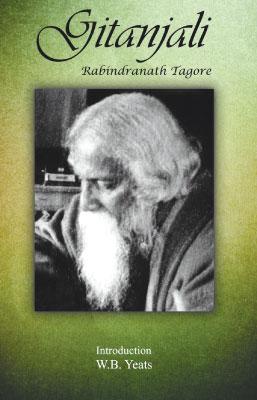
 Gitanjali by Rabindranath Tagore is a collection of poems originally written in Bengali in 1910 and translated into English by Tagore in 1912. It was well received when it was first published in London in 1912 and Tagore was awarded the Nobel Prize in Literature for Gitanjali in 1913. William Butler Yeats wrote the Introduction to the first edition in which he says,
Gitanjali by Rabindranath Tagore is a collection of poems originally written in Bengali in 1910 and translated into English by Tagore in 1912. It was well received when it was first published in London in 1912 and Tagore was awarded the Nobel Prize in Literature for Gitanjali in 1913. William Butler Yeats wrote the Introduction to the first edition in which he says,
“The work of a supreme culture, they yet appear as much the growth of the common soil as the grass and the rushes. A tradition, where poetry and religion are the same thing, has passed through the centuries, gathering from learned and unlearned metaphor and emotion, and carried back again to the multitude the thought of the scholar and of the noble. If the civilization of Bengal remains unbroken, if that common mind which—as one divines—runs through all, is not, as with us, broken into a dozen minds that know nothing of each other, something even of what is most subtle in these verses will have come, in a few generations. When there was but one mind in England, Chaucer wrote his Troilus and Cressida, and thought he had written to be read, or to be read out—for our time was coming on apace—he was sung by minstrels for a while. Rabindranath Tagore, like Chaucer’s forerunners, writes music for his words, and one understands at every moment that he is so abundant, so spontaneous, so daring in his passion, so full of surprise, because he is doing something which has never seemed strange, unnatural, or in need of defence.”
In the verse titled ‘Mind Without Fear’ Tagore says,
“Where the mind is without fear and the head is held high;Where knowledge is free;Where the world has not been broken upinto fragments by narrow domestic walls;Where words come out from the depth of truth;Where tireless striving stretches its arms towards perfection;Where the clear stream of reasonhas not lost its way into the dreary desert sand of dead habit;Where the mind is led forward by thee into ever-widening thought and action---Into that heaven of freedom, my Father, let my country awake.”
In Bengali, Gitanjali means ‘Song Offerings’ and Tagore explores the theme of spirituality in the poems. The poems are lyrical and emotional and explore the relationship between God and the devotee. The poems provide an insight into an individual’s relationship with God and spiritual growth.
REVIEWED BY HANNAH GEORGE
